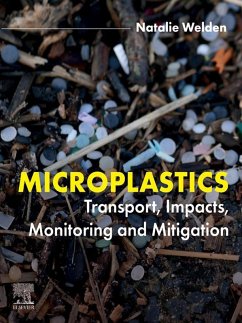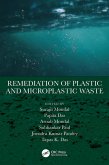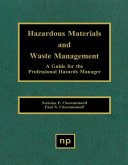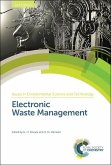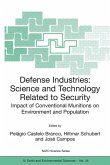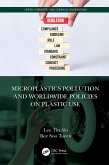Microplastics: Transport, Impacts, Monitoring and Mitigation provides a critical analysis of our current understanding of microplastic science, the methods by which microplastic are observed in the environment, and our options for mitigation and remediation. Associated concern for the environment has resulted in substantial interest in the management and mitigation of these persistent and pervasive pollutants. Nevertheless, our progress towards reliable monitoring and successful management has been limited.
The book is intended for those studying or working in the fields of environmental science and waste management (as well as associated areas), and provides the holistic context needed to evaluate and interpret the outputs associated with the interlinked problems of plastic and microplastics. In this manner, the reader will be invited to explore the ongoing challenges which have thus far prevented the development of a thorough understanding of the risk posed by plastic and microplastic pollution, to discuss the implications of ongoing uncertainty to effective plastic management, evaluate the current strategies to control the ongoing proliferation of plastic pollution.
The book is intended for those studying or working in the fields of environmental science and waste management (as well as associated areas), and provides the holistic context needed to evaluate and interpret the outputs associated with the interlinked problems of plastic and microplastics. In this manner, the reader will be invited to explore the ongoing challenges which have thus far prevented the development of a thorough understanding of the risk posed by plastic and microplastic pollution, to discuss the implications of ongoing uncertainty to effective plastic management, evaluate the current strategies to control the ongoing proliferation of plastic pollution.
- Models the issue of microplastic pollution with historic case studies of alternative pollutants
- Demonstrates the differing requirements of microplastic monitoring and management
- Contains idealized workflows specific to key practitioner groups, the content of which will reflect recent debates and divergences in the field
- Emphasizes critical comparison between emerging management measures not apparent in current edited texts which tend to consider individual approaches separately
- Places management and remediation methods in the context of the observed scale and impact of associated microplastics in the environment to indicate the potential benefits of each approach
Dieser Download kann aus rechtlichen Gründen nur mit Rechnungsadresse in A, B, BG, CY, CZ, D, DK, EW, E, FIN, F, GR, HR, H, IRL, I, LT, L, LR, M, NL, PL, P, R, S, SLO, SK ausgeliefert werden.

